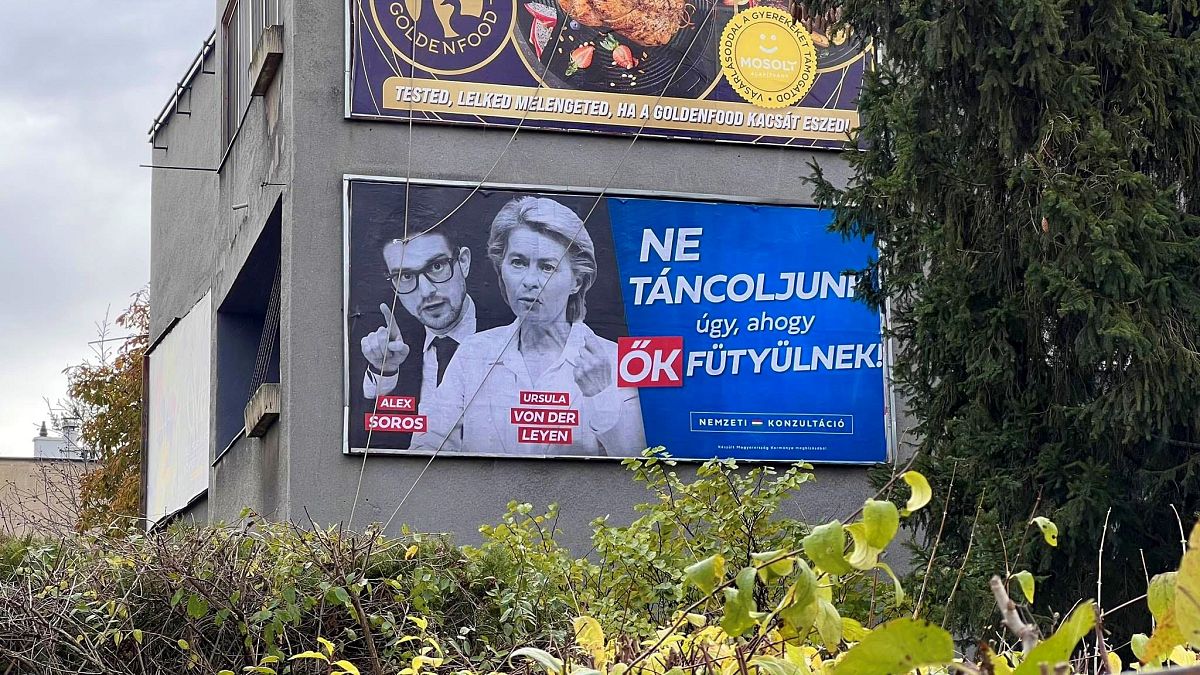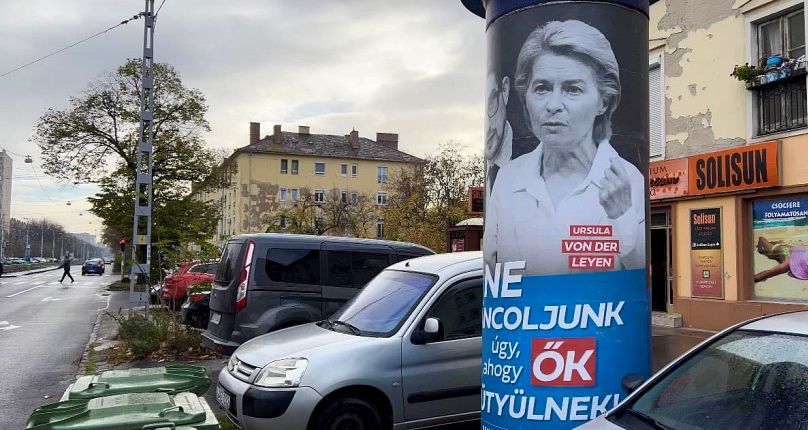Ursula von der Leyen has become the personal target of a new campaign launched by Viktor Orbán as part of a national consultation that levels serious accusations against the European Union's political agenda.
The billboards, plastered on streets across Hungary, feature the president of the European Commission standing next to Alexander Soros, the 38-year-old son of billionaire George Soros and current chair of the Open Society Foundations (OSF), with a capitalised text that reads: "Let's not dance to the tune they whistle!"
Although the Soros family and the OSF, which supports civil society organisations around the world through grants, have been maligned by the Hungarian government in the past, this marks the first time that von der Leyen has been targeted in a state-led campaign.
The non-binding consultation is a collection of biased statements about different EU policies that ask citizens to choose between two possible responses, one against and one in favour. The surveys will be mailed to Hungarian households by Christmas time and should be returned no later than 10 January, with an online version available.
Most of the 11 questions include deceitful information, such as claims that "financial support from Brussels to Palestinian organisation has also reached Hamas," something that has not been proved, and that "Brussels wants to create migrant ghettos in Hungary," an objective that is nowhere to be found in the bloc's migration reform.
Other questions centre on the EU's military and financial support for Ukraine, which Orbán has vowed to oppose, and the war-torn nation's membership application.
Reacting to the roll-out of the billboards, Eric Mamer, the chief spokesperson of the European Commission, said that von der Leyen, upon being shown the images, was "completely unfazed" and did not bat an eyelid.
The president "has full trust in the capacity of the Hungarian public to make up its own mind based on objective, factual information as to what we do," Mamer said on Monday.
"Let's be clear. We know this is not the first time. It's probably not the last time. We have business to do. We have crises to manage. We have policies to implement."
Regarding the claims contained in the survey, Mamer refused to deliver a fact-checking rebuke and referred potential respondents to the official channels of the European Commission. The official also avoided saying whether using the image of Soros, a person of Jewish descent, amounted to anti-Semitism.
"These statements are completely untrue," Mamer said. "We can give you our positions on all of the policies that are mentioned, but we're not going to get into a debate about statements which are put in a consultation just for the Hungarian authorities."
"Quite frankly, we have no interest in losing time with that sort of issue in the current international context," he added.
Resorting to attacks against a sitting European Commission president is not uncharted territory for Viktor Orbán, who is known for blocking and derailing collective EU action.
Back in 2019, his government rolled out billboards that targeted Jean-Claude Juncker, the then-executive's chief, and George Soros. "Everybody has the right to know what Brussels is planning!" the posters read. The 2019 campaign, whose graphic design is distinctly similar to the 2023 initiative, promoted inaccurate and misleading claims about the EU's migration policy and prompted accusations of anti-Semitism.
The latest confrontation between Brussels and Budapest comes amidst growing reports that the European Commission is preparing to review the decision to freeze €22 billion in EU funds allocated to Hungary. The country is expected to fulfil a series of "milestones" as a condition to obtain the money, paralysed over long-running rule-of-law concerns.

